The 17th edition of SIB’s flagship biennial event, the [BC]2 Basel Computational Biology Conference, continued its long-standing success in connecting the Swiss and global bioinformatics community to share best practices and advances, foster collaboration, and nurture innovation. Scientists, industry representatives and clinicians from 31 countries explored cutting-edge developments in bioinformatics and AI and gained a wealth of practical guidance – from developing Large Language Models to launching successful start-ups. Held from 8–10 September, the event also celebrated the winners of the 2025 SIB Bioinformatics Awards and 2024 SIB Remarkable Outputs.
Join the next flagship bioinformatics events
- 2026 European Conference on Computational Biology (ECCB): organized by SIB in Geneva from 31 August to 4 September, under the theme of ‘Biodiversity, AI and Health: connecting knowledge for the society of tomorrow’. See more
- 2027 [BC]2 Basel Computational Biology Conference: organized by SIB in Basel from 20-22 September. More information available soon.
Fostering knowledge exchange between academia, industry and healthcare
[BC]2 2025 gathered over 500 scientists, clinicians, and pharmaceutical and other industry representatives to share the latest bioinformatics and AI advances – and their application to disease research, environmental studies, healthcare and more. Attendees came from top institutions and companies in Europe and beyond, including Imperial College London, Johns Hopkins University, Max Planck Institute, Google DeepMind, Novartis, AstraZeneca and Nestle.
Join the next flagship bioinformatics events
- 2026 European Conference on Computational Biology (ECCB): organized by SIB in Geneva from 31 August to 4 September, under the theme of ‘Biodiversity, AI and Health: connecting knowledge for the society of tomorrow’. See more
- 2027 [BC]2 Basel Computational Biology Conference: organized by SIB in Basel from 20-22 September. More information available soon.
The event’s importance to the bioinformatics community – as well as the life science sector in host city Basel and Switzerland – were highlighted in addresses by Lukas Engelberger, Member of the Government Council of the Canton of Basel-Stadt and Head of the Department of Health, and SIB Executive Director Christophe Dessimoz. Its reputation and relevance were evidenced by a 24% increase in the number of submitted abstracts over that for the 2023 edition, as well as a high rate of returning attendees plus new attendees who heard about [BC]2 from a colleague. Women comprised 43% of all attendees, and the majority of invited and keynote speakers were female, reflecting ongoing progress for gender equity.
A spotlight on AI-driven bioinformatics
The [BC]2 Scientific Committee delivered an inspiring programme under the theme of ‘Bioinformatics meets AI: shaping the future of data-driven biology’. Scientific talks and posters focused on six application areas: cancer research, clinical data science, single-cell and spatial omics, evolutionary and environmental science, and protein design and research.
Highlights included keynote talks from:
- whole genome sequencing pioneer Serena Nik-Zainal (University of Cambridge), who outlined recent advances in identifying cancer mutation signatures via a combination of computational and experimental methods, and how these can inform personalized treatments;
- globally renowned bioinformatician Peer Bork (EMBL), who presented Tara Ocean and other collaborations contributing to a planetary-scale microbiome resource – including an upcoming study of Swiss and other European freshwater microbial ecosystems and the impacts of human activities, which will harness AI to inform real-time data acquisition as well as SIB Resources for data processing;
- immunology expert Julia Merkenschlager (Harvard Medical School), who described a new mathematical model that explains how the immune system ensures continued strong antibody responses to infections and vaccinations.
Supporting Swiss bioinformatics start-ups
Attendees also gained expert insights into successfully moving from academia to industry. The session covered everything from legal, regulatory, and intellectual property considerations to the wealth of business development and funding support available in Switzerland’s innovation ecosystem.
Roche and other Swiss life-science companies outlined their use of AI and cutting-edge bioinformatics to deliver research and clinical solutions in a separate industry session. Topics included drug discovery (Genentech, Alithea Genomics), precision medicine (Novigenix), and pharmaceutical applications of spatial omics (Roche).
Recognizing excellence in computational biology
The conference showcased outstanding achievements by bioinformaticians around the world through special celebrations and sessions.
The 2025 laureates of the SIB Bioinformatics Awards were announced as:
- Early Career Award: Michael Skinnider, Princeton University Branch of the Ludwig Institute for Cancer Research, USA, for his innovative application of computational biology and AI to an impressive range of biological questions and analyses, including the new area of metabolomics;
- PhD Paper Award: David Meyer, University Hospital and University of Cologne, Germany, for a paper in Nature Genetics on a mathematical model to investigate the cause of aging;
- Innovative Resource Award: scverse, an open-source resource for software tools to store and analyse single-cell genomics and other ‘omics’ data; received by Ilan Gold, Helmholtz Munich, Germany.
The laureates, as well as the eight winners of the 2024 SIB Remarkable Outputs, presented their work in a short talk – as did the researchers who submitted the best abstracts, which included SIB Members Peter Skrinjar (Biozentrum) and Athina Gavriilidou (University of Lausanne).
Poster prizes were awarded for each thematic area, to:
- Clinical data science: Cassandra Litchfield, University of Zurich and University Hospital Zürich, Switzerland, who presented a bioinformatics workflow for integrating whole genome sequencing into routine molecular pathology of tumour samples;
- Bioinformatics for cancer research: Alen Stambolliu, National Institute of Molecular Genetics (INGM), Italy, who introduced the innovative concept that non-coding, mobile genetic elements could serve as immunological checkpoints in cancer;
- Bioinformatics in infectious diseases: SIB Member Benjamin Heiniger, Agriscope, Switzerland, who presented a proteogenomics framework that identified previously unknown proteins in Mycobacterium tuberculosis;
- Evolutionary and environmental processes: Laura Voitl, University of Bern, Switzerland, who identified genetic variants in domestic animal species using long-read sequencing;
- Protein design and modelling molecular assemblies: SIB Member Océane Follonier, University of Basel, Switzerland, who showed an AI-driven vaccine design methodology for a type of virus that currently lacks targeted treatments;
- Computational methods for single-cell and spatial omics: Siyuan Luo, ETH Zurich, Switzerland, who presented a validation-metrics framework for analyses of single-cell and spatial omics data.
SIB Member Qingyao Huang, University of Zurich, Switzerland, was additionally awarded for highlighting work from SIB’s EcoImpact focus group on fostering sustainability and environmental awareness at work.
Providing practical bioinformatics and career guidance
[BC]2 included a day of tutorials and workshops where attendees learned the latest bioinformatics methods and exchanged practical experiences and research ideas. Topics included guidance on specific bioinformatics resources, the use of Large Language Models for analysing biological and medical data, solutions for sharing sensitive data, and techniques for data-driven protein and drug discovery.
Attendees also benefited from a ‘Boost your career’ corner hosted by SIB’s People and Culture team, which provided personalized job application feedback, interview advice, and more.
We warmly thank all speakers, sponsors and attendees for the success of [BC]2 2025, and hope to see you at the next edition taking place 20-22 September 2027.
Reference(s)
Image credit: SIB


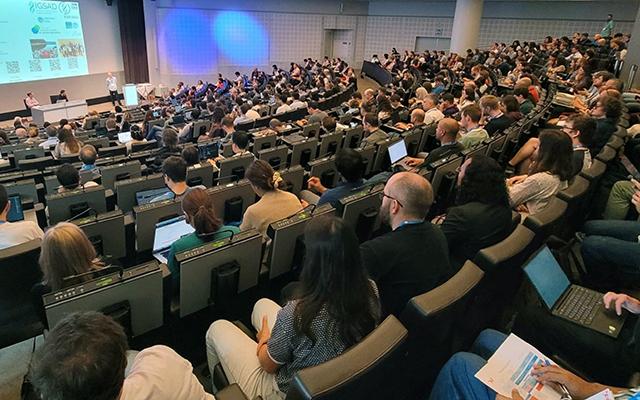
![Peer Bork giving a talk at the [BC]2 Basel Computational Biology Conference](/sites/default/files/styles/card_image/public/2026-01/Peer-Bork_banner.jpg?h=602a36b5&itok=KM0WZZWK)
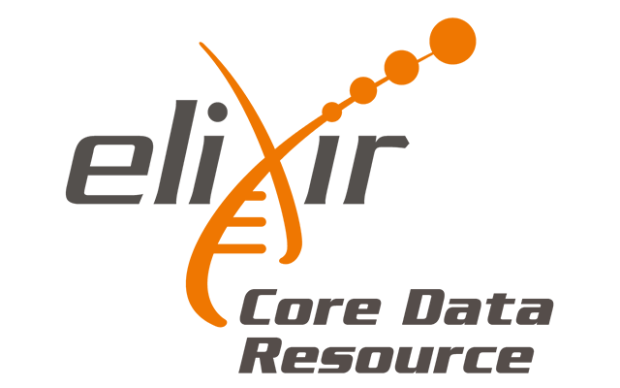
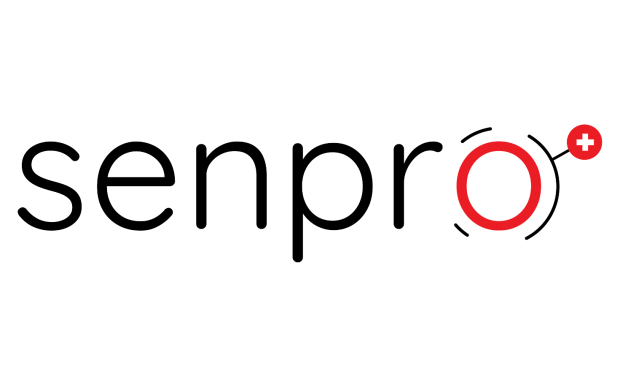
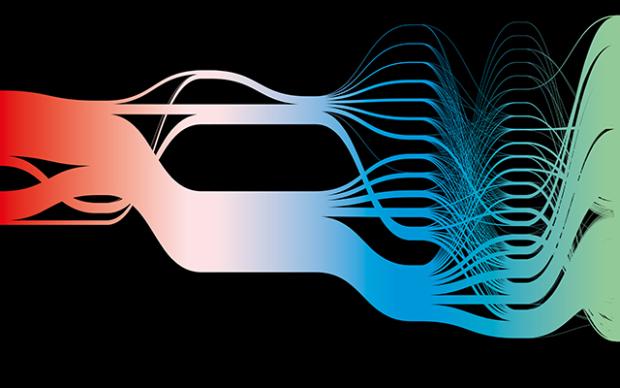
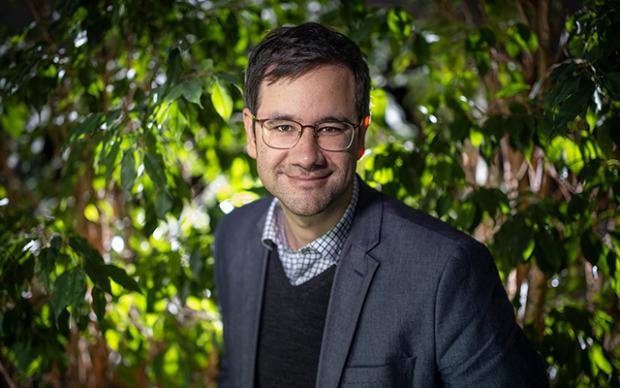
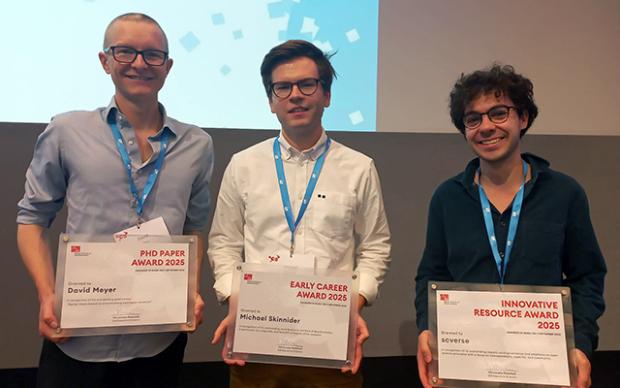

![Michael Skinnider presenting at the [BC]2 Basel Computational Biology Conference](/sites/default/files/styles/card_image/public/2025-10/michael-skinnider-banner.jpg?h=602a36b5&itok=tmJobPUi)